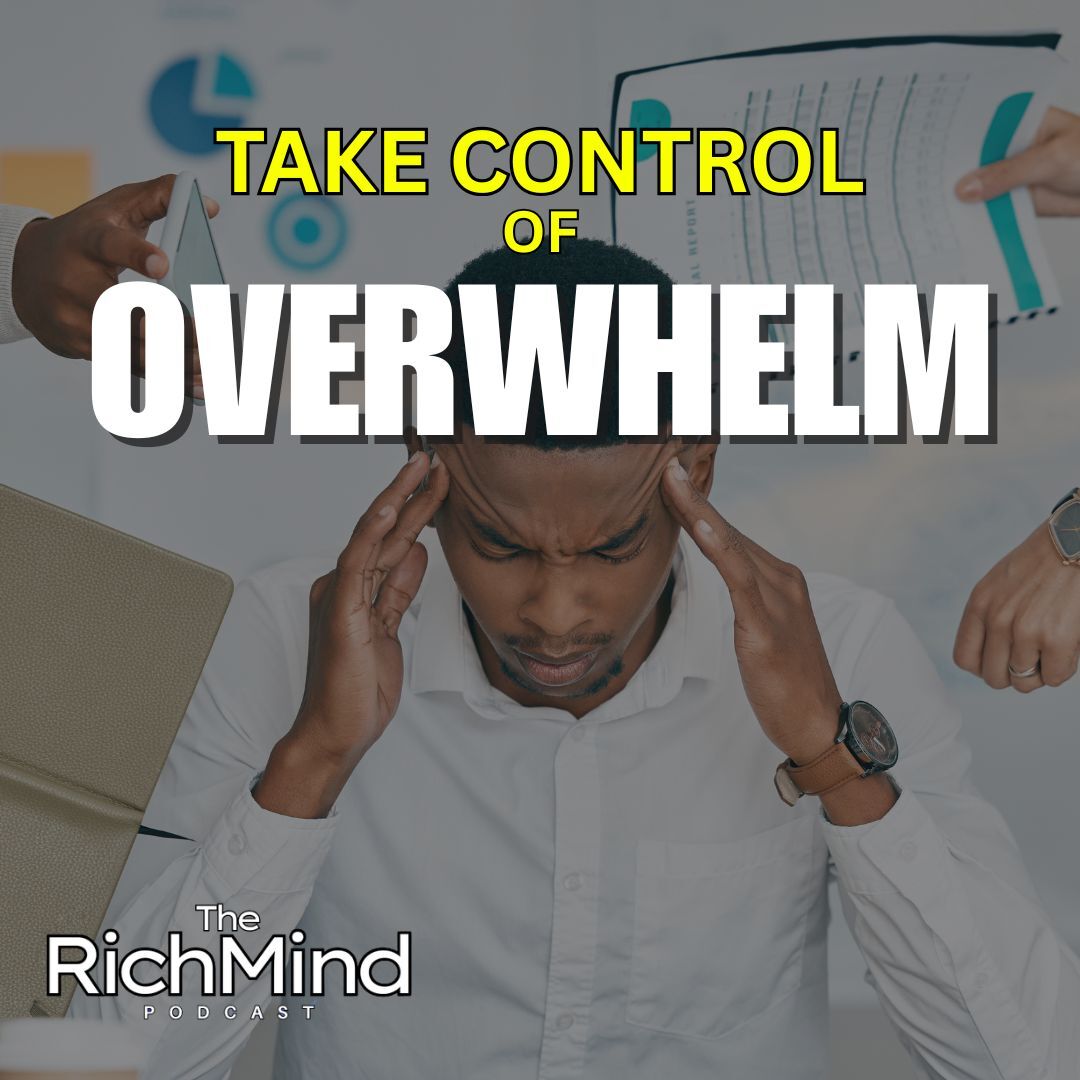How to Identify and Rewire the Subconscious "Software" That Runs Your Life
Description
This episode of the Rich Mind Podcast is a follow-up and deeper dive into one of the most powerful forces shaping our lives: our paradigms.
Randy and his daughter Adrienne return to dissect the "mental software" we're programmed with from a young age. They discuss how these deep-seated beliefs, often formed before we can even reason, act as a filter that dictates our reactions, creates emotional triggers, and reinforces core wounds like not feeling "lovable" or "worthy."
Through personal stories and real-time analysis, they explore how to become aware of this programming, challenge the "black and white" thinking it creates, and reclaim control over your own thoughts, feelings, and actions.
This conversation is a practical guide to identifying your own paradigm and beginning the work of rewriting it.
Key Takeaways:
- Your paradigm is the subconscious "software" programmed into you during your formative years (ages 0-8) that controls most of your automatic behaviors and beliefs.
- This mental program acts as a "safety shield," creating emotional triggers to keep you within your comfort zone and away from perceived threats.
- Many of our deepest struggles and limiting beliefs stem from stories we created in childhood to make sense of events, even if those stories aren't true.
- The first step to changing your paradigm is awareness: recognizing a trigger in the moment and questioning where the feeling is coming from.
- We are not our feelings. Separating your identity from your emotions (e.g., saying "I am feeling sad" instead of "I am sad") is a powerful technique to regain control.
- A powerful mantra to release the need for external validation is: "What's meant for me will find me, and anything else is none of my business."
- It's never too early and never too late to start the work of understanding and rewriting your own paradigm.
Questions Answered in This Episode:
- What is a paradigm and how does it control your daily life?
- How does our childhood programming affect our adult relationships and success?
- How are emotional triggers connected to our core wounds and paradigm?
- How can you become more aware of your own paradigm in real-time?
- Why do we often feel like we can't put our negative feelings into words?
- What is the danger of using "I am" statements when describing negative emotions?
- How can you stop caring about what others think and stay focused on your own path?
- What practical steps can you take to begin changing your deep-seated programming?
Key People, Concepts, & Terms:
- People: Randy Wilson, Adrienne Wilson, Bob Proctor.
- Concepts: Paradigm, Subconscious Mind, Software/Filter Analogy, Core Wounds (Not Lovable/Worthy), Triggers, Black and White Thinking, I Am Statements, Self-Awareness, Personal Development, Journaling.
Key Episode Timestamps
00:00 - Introduction: Going Deeper into the Concept of Paradigms
02:16 - What is a Paradigm? The "Software" Programmed in Our Formative Years
03:00 - How Your Paradigm Creates a "Safety Shield" and Core Wounds
04:58 - A Real-Life Example: You Are the Sum of the 5 People You Spend Time With
06:28 - Why We Can't Always Put Our Feelings Into Words (The Subconscious Takes Over)
08:32 - What Do Your Triggers Look Like? (Quiet & Distant vs. Emotional)
12:23 - Randy's Story: Unpacking Childhood Triggers and the Need to Be Liked
18:10 - Adrienne's Story: Dealing with the "Wilson Kids" Reputation and Forging Her Own Identity
23:14 - Actionable Technique: Separating Your Feelings From Your Identity ("I Am Feeling...")
30:43 - One Step Forward is Still Forward: Progress Over Perfection
34:38 - Practical Tools: Journaling and Voice Memos to Get Your Paradigm "Out"
























